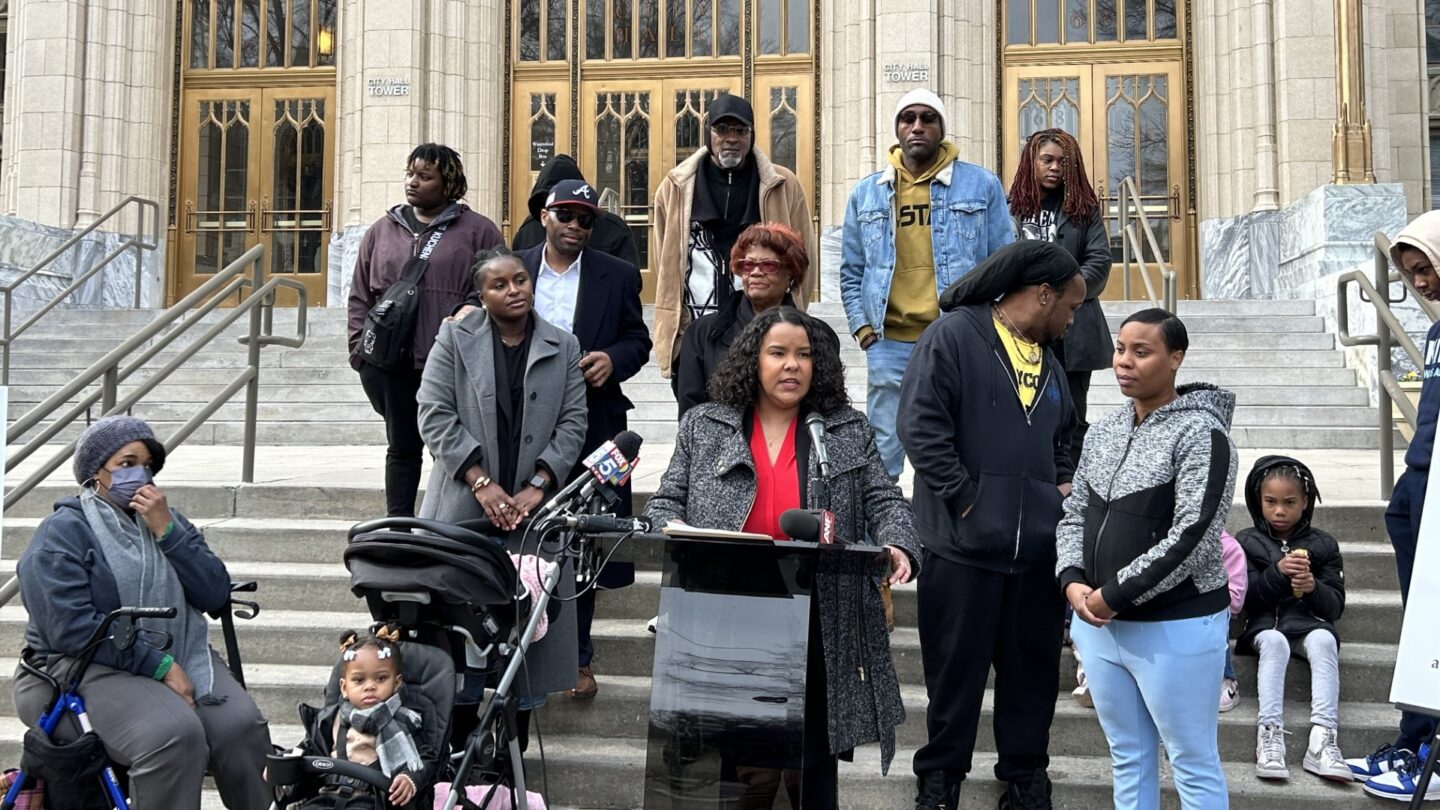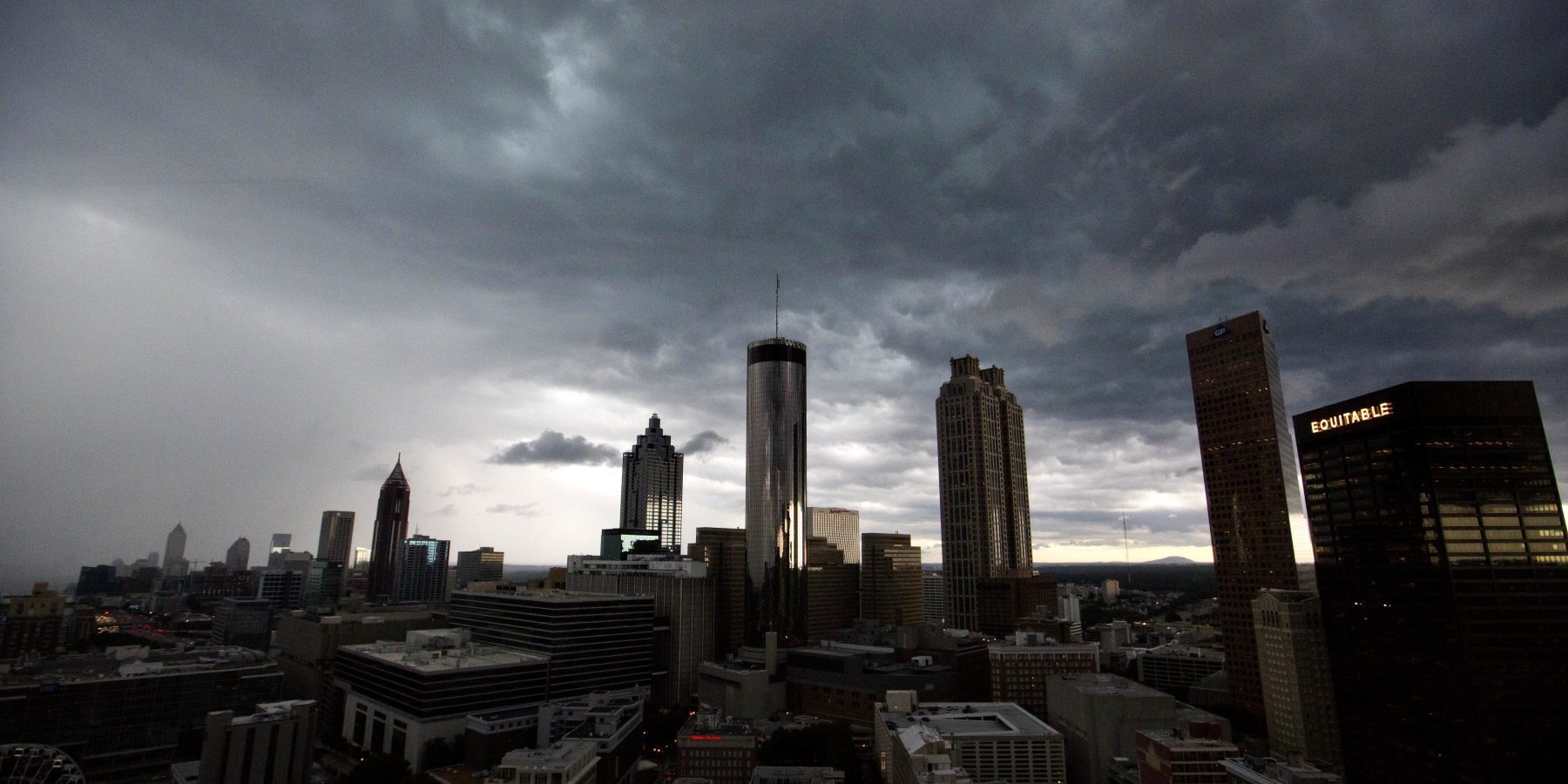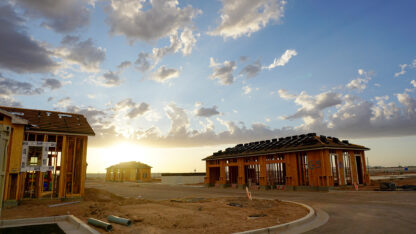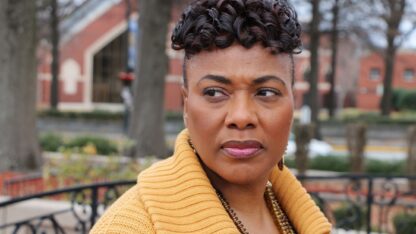After a quick, torrential downpour dumped over 2 inches of rain onto the city last year, some Westside residents are suing the City of Atlanta over sewage overflows and flooding during the event.
On Feb. 29 the Meghan S. Jones law firm filed the first of what residents say will be over a dozen lawsuits seeking damages for personal and real property and medical expenses.
“Additionally, we are going to be pursuing inverse condemnation actions, because in a nutshell, this has constituted a governmental taking,” Jones said at a press conference on the steps of City Hall on Feb. 29.
The suit alleges the City of Atlanta has not maintained sewer and stormwater infrastructure on the Westside. It also alleges the city didn’t inform residents that the Sept. 14 floodwater contained sewage, a health hazard. While residents reached out to the city and sought relief after the flood, Jones noted this wasn’t declared a flood or natural disaster by FEMA, which changes what aid is available.
“This is not a natural disaster. This is not an act of God. This is an act of malfeasance by the City of Atlanta,” Jones said at the press conference.
Jones said future lawsuits will be filed by household for residents in West Atlanta neighborhoods such as Hunter Hills, Westin Heights, Vine City and English Avenue.
The flooding and sewage overflow problems are not new for the Westside. Many of the residents spoke at the press conference detailing years of attempting to work with local leaders to explain the stormwater and sewage problems in their neighborhoods and seek resolutions, but each said the problems continued unresolved leading up to Sept. 14, 2023.
On that day, residents of West Atlanta neighborhoods, as well as colleges like Clark Atlanta University, said that soon after the heavy rain started, the flooding became overwhelming.
The two inches of water turned into several inches to feet. Neighbors filmed and posted online photos and videos of water gushing out of manholes, cars floating out of their parking spots and piles of ruined furniture and home goods left on curbs to be hauled away.
Mahdi Chaney said he tried everything possible to stop the water from getting into his house.
“My hands began to shake as I tried to seal the back door. Moments later, the strong water smashed in my back door; As I ran through the sewage water, I saw the water spilling in through the windows,” Chaney said.
He said he, his wife and two daughters were fortunate they could move into one of the rental properties he manages as a real estate agent, although it cost them income on top of the stress, loss of personal belongings and more. His wife gave birth to their second child only weeks after the flood — early he says, from the stress.
Other residents said they weren’t as lucky. In a written statement read by Jones, resident Raymond Bruce — who was hospitalized and unable to attend the press conference — wrote the flood cost him everything.
“Within 20 minutes, I lost priceless photos, clothes, TVs and so many things I can never get back, like pictures and certificates. I won’t give you a whole list here. Just know I lost everything,” Bruce wrote.
He wrote that he lost his home, had a sickle cell crisis from the stress and is still working to replace what he can.
“It’s a hard process to watch your life washed away in 20 minutes,” Bruce wrote.
In a written statement to WABE, the City of Atlanta said it received and conducted visits to about 117 properties, of which 31 claims have been received and are either under review or have been approved.
A history of sewage struggles and solutions
The City of Atlanta was built with a system called a Combined Sewage Outfall, or CSO — that means that the pipes that carry away what is flushed down household toilets were the same ones carrying stormwater. When the rain gets too heavy, the system overflows.
In its written comment, the City of Atlanta said that the city has successfully separated 90% of the CSO pipes to fix this problem and keep those two separate.
The city has also engaged in projects on the Westside to help reduce flooding, such as building parks like Rodney S. Cook Sr. Park in Vine City to capture stormwater to reduce how much is going into the pipes. The city also said it is engaged in planning, designing and implementing stormwater and flood-related projects on the website, but in an email to WABE said there is no formal list and did not provide details of what those projects are or might be.
The city has invested more than $2 billion in combined and separate sewer system improvements, and part of that has to do with two federal consent decrees and a state consent decree — legal orders from lawsuits against the city mandating it clean up its waterways. While the first of these major court cases resulted in a consent decree over 25 years ago, the city is still working on long-term compliance to reach its clean water goals.
This isn’t the first time Westside neighbors have tried to sue the City of Atlanta over flooding and sewage-related issues. About 10 years ago, residents of Peoplestown sued the city over the same issue. Jones said some went to jury trials and some were settled. Over time, especially as development has cut down on greenspace in the city that soaks in rainwater and keeps it out of the city’s pipes, the flooding has only worsened.
Jones said her firm will continue to file lawsuits on behalf of residents in the coming weeks.









